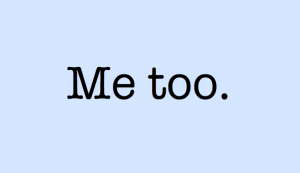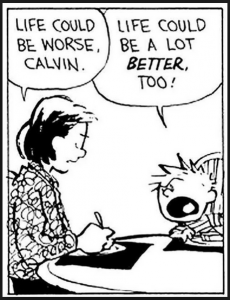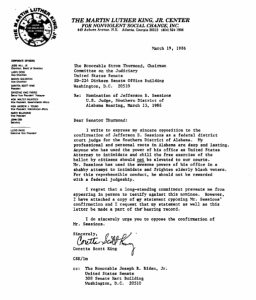An incomplete but representative list of my experiences of sexual harrassment and assault:
• The obscene phone calls that started when I was 13.
• The coworker who stalked me from floor to floor in our Cupertino Apple building, cornered me, grabbed my hand and licked my wedding ring.
• The flasher at the park.
• The museum guard who followed me around the museum gallery in Washington DC and then came up to me to comment on my ass.
• The coworker in Menlo Park who moved his work station underneath the stairs so he could look up my dress when I went upstairs.
• The construction workers in Palo Alto who made loud bets about what I’d be like in bed.
• The bully sitting next to me in seventh-grade math who loudly accused me of stuffing my bra.
• The Livermore yahoos in pickup trucks who shouted obscenities and made kissing noises at me as they sped by me on the street when I was eleven years old and walking to the grocery store, the record store, the movies or just about anywhere. That kept up through high school, and a new crop did the same thing to me when I visited Livermore again in 2013.
• The San Jose coworker who asked about my breast size in front of my colleagues and referred to me as Sweet Buns until I made it clear that THAT wasn’t going to be tolerated.
• The coworker at a temp job who went to the lunch room when I did but brought no lunch, sat at the table next to mine and stared me down while I ate, refused to stop when I asked him to, and ultimately forced me to eat my lunches in my car for several months.
• Yet more, highly disturbing obscene phone calls that I received during my twenties, some of which included violent fantasy commentary and one of which incorporated a recording of my own voice taken from my outgoing work voicemail message.
• The supposedly liberal and forward-thinking Portland artist and friend of a friend who openly and blatantly assessed my body and spoke only to my breasts when introduced to me at a gallery opening.
• The man whom I supervised at Apple who announced that his wife was away for the weekend but that he had an open marriage, so I was welcome to come home with him.
• The beggar at the crowded Seattle bus stop who responded to my giving him bus fare by telling me what he’d like to do with me in the nearby building’s stairwell until I loudly told him to leave me alone, drawing the attention of 40 people or more, not one of whom spoke up or asked whether I was okay.
• The man in Rome who walked directly up to me on a very crowded sidewalk and grabbed both of my breasts hard before rushing away, which surprised not a single Roman.
• My daughter’s school bus driver who assumed that my daily “good morning” and the cookies I gave him at Christmastime constituted a come-on. This resulted in his grilling my neighbors about my marital status and hugging me close and hard against my will when he ran into me at my daughter’s school, resulting in my having to stop going to the bus stop and driving my daughter to school for the rest of the school year.
• The old man sitting behind me in the cinema in Nice, France, who stuck his hands through the gap in my seat and groped my ass when I was 16 and watching a movie with my friends.
• The Apple coworker for whom I babysat who suggested that the cure for his boredom was to have an affair with me.
• The harassing ex-boyfriend who texted and called endlessly to tell me that despite what I said, I actually loved and needed him, then stalked me, then wrote me to comment angrily on the book he saw me reading (in a city he had no business being in) and to tell me what my choice of book said about our defunct relationship, what my thoughts about him were, and why I was wrong.
And on and on and on.
So yeah. Me too.







